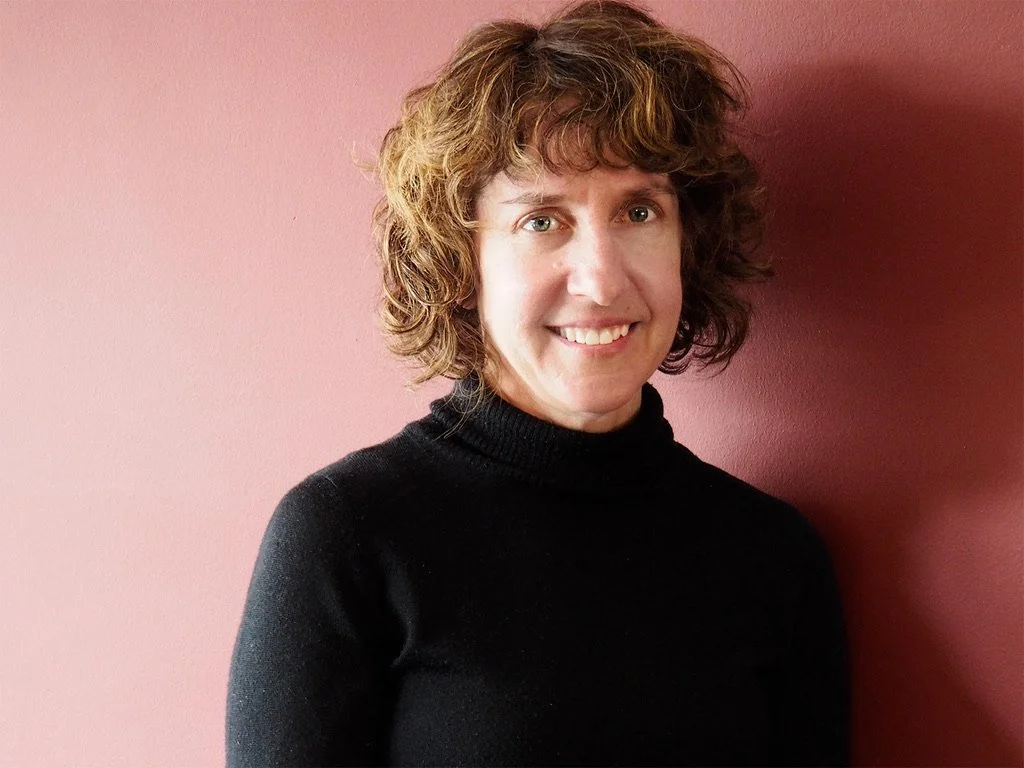Navigating the Poly-Crisis: Assessing the Health and Future of Science
Science today is simultaneously expanding at an unprecedented global scale and facing a growing set of interconnected challenges. This article examines the health of contemporary science in a world of poly-crisis — from internal incentive distortions and declining trust, to geopolitical pressures, access barriers, and the transformative impact of AI — and argues why strengthening science’s robustness and authority is essential to navigating global turmoil.
International Scientific Collaboration: Trust Building and Problem Solving
Barbara Koremenos argues that international scientific collaboration can build trust and help solve global problems, even amid geopolitical rivalry. Using stratospheric aerosol injection (SAI) as a case, she makes the ethical and strategic case for transparent, government-backed research—distinct from deployment—and points to the Antarctic Treaty system (and bodies like SCAR) as a model for credible, science-led governance. She stresses that inclusive participation, especially from the Global South, and clear communication are key to closing today’s trust gaps.
Have we finally come to the end of the frontier?
This article traces today’s tension around the post‑WWII “social contract” for publicly funded basic research (shaped by Vannevar Bush’s Science: The Endless Frontier). It argues the contract is straining as governments demand faster, more visible returns, even though long-run payoffs (like mRNA vaccines) show why basic research matters. It proposes updating the model through broader collaboration, clear outcome goals, and continued support for curiosity-driven research as essential, not optional.
Rethinking the social contract for science: the importance of questions
Ruth M. Morgan argues that trust between science and society depends on sustained, open dialogue. She highlights that knowledge is disruptive and uncertain, and that progress starts with asking better questions—especially in an era of misinformation.
Five Years of the Frontiers Policy Labs: Still a Long Way to Go
Five years after its launch in November 2020, the Frontiers Policy Labs has grown into a global initiative connecting thousands of readers and contributors worldwide. Born out of the COVID-19 crisis, the Labs explore how open science can inform policymaking, addressing challenges from pandemic responses to sustainability, AI, and biotechnology. Guided by the principle of rethinking the world with science, the Labs aim to develop evidence-based policies for a rapidly changing world, where old frameworks no longer suffice. Looking ahead, priorities include ensuring a healthy planet, responsibly guiding AI and biotechnology, and addressing global security. To support this mission, the new Science House initiative will bring together leaders from science, policy, and industry at the 2026 World Economic Forum. As JCB notes, “Our first five years were just the beginning… we still have a long way to go.”
No Place to Hide from Climate Change
“No Place to Hide: Science Is the Foundation of Policy” calls for urgent, science-driven climate action. With global temperatures already surpassing 1.5°C, the EU places science at the heart of its Green Deal, climate law, and upcoming 2040 framework. The message is clear: climate policy is not just about nature—it is about security, resilience, and economic survival. Science provides the evidence, innovation, and solutions we need, but action requires breaking silos, effective communication, and shared responsibility across all sectors. The EU’s upcoming climate adaptation plan and investment in resilience show the path forward. The research community is central to this mission, and their work fuels the hope of a safer, stronger, and more sustainable future. There is no time to wait—together, we must act now.
Roadmap to Reduce Animal Testing – The EU Talks, the US Acts!
The European Union has embarked on a comprehensive process to phase out animal testing for chemical safety, engaging stakeholders across numerous consultations and workshops, though final implementation remains years away. In contrast, the United States Food and Drug Administration has unveiled a clear and ambitious roadmap to rapidly reduce animal testing, centered on validated New Approach Methodologies such as organ-on-chip and advanced computational models. These regulatory developments underscore a global shift toward innovative, human-relevant safety testing methods and signal important changes for pharmaceutical regulation worldwide.
Revisiting the social contract: A summary of an Address delivered at the International Science Council Muscat Global Knowledge Dialogue
In a context of tensions and conflict globally and locally, we are seeing polarisation and isolation in our societies, and growing evidence that trust is being eroded. This tension is clear within the science community (in its broadest definition), and between science and society. (…)
Biodiversity and human health
As the recent repeated climate-related tragedies in several countries (…) demonstrate, we are now observing what was predicted many years ago on the basis of scientific models. As William Ripple and colleagues have stressed, (…) “We are on the brink of an irreversible climate disaster. This is a global emergency beyond any doubt. Much of the very fabric of life on Earth is imperilled. We are stepping into a critical and unpredictable new phase of the climate crisis.
Making sense of science in the 21st Century – trust, repair, dialogue, and engagement
We live in a time of significant global challenges. The term polycrisis has emerged as we face wide-reaching and impactful issues such as the climate, war and conflict, and health. To address these challenges, we will need political will, global collaboration, inter- multi- and transdisciplinary approaches, systems thinking and scientific breakthroughs at scale. Science and scientists have an important role to play as societies tackle these challenges and lay foundations for actions that will direct the course of the future. It is possible to argue that science that engages effectively with society will depend on the sharing, uptake and accessibility of scientific knowledge and insight, but also on the way that science is designed and co-designed in ways that reflect excellence and the aspirations and expectations of societies.
What is science and who is a scientist in the 21st century?
In the 21st Century, as humanity and the Earth face crises of survival and sustainability, we must fundamentally rethink the values that science and technology aspire to, their social roles and methods, and the norms of scientists. This rethinking will likely lead to significant changes in the 200-year history of modern science, which has been institutionalized since the early 19th Century.
Science for a second chance
Modern society is one of fragmented logics. Business, finance, government, academia, all apply different logics in their operations. All of them make sense within their limited bubbles, all together create the conditions for self-extinction.
Science is perceived by many as the activity allowing us to make sense of the rest, by unveiling the mysteries of how nature works and enabling human inventions changing, supposedly for good, our relationship to other humans, to nature, and to time. But science itself is a bubble operating with a partial logic. I am talking here of what makes scientists do what they do, investigate certain topics (and not others), and take decisions for their professional careers. Hyper-specialisation has become a useful tool to keep the dynamic of publication-grant-publication running, and that is what defines a good scientific career. Are we sure this logic is enough to serve societal purposes in the 21st century?
The more AI, the less understanding?
In the hyperbole about artificial intelligence, there have been claims about how AI, in the guise of large language models, can plausibly, confidently and succinctly summarise complex science, accompanied by warnings about its propensity for bias, factual inaccuracies and, most notoriously, to ‘hallucinate’ fake references. As was the case with the internet, this fabulous tool has to be used wisely if we are to get the most benefit.
But there is a deeper problem with gazing at the world through an AI lens since, if anything, it can obscure the process of science.
Trust in Science? But for how long?
Today's fast-changing society is faced with a variety of complex large-scale societal challenges. Simultaneously, people are losing trust in both science and those studying and researching these challenges. Still, we need those scientists from all fields and backgrounds more than ever to work in inter- and multidisciplinary ways, solving these challenges and having their insights assist politicians and decision-makers. It is apparent that the scientific community has to foster trust in science. But how do we ensure that efforts to build trust in science are sustainable and that trust in science remains integrated in the community for the next decades to come? More than ever we need to engage across the generations and particularly the younger generations.
Rebuilding trust and embracing diverse knowledge systems: A perspective from developing countries
In many developing countries, the role of science in policy-making and public life is often argued, undervalued, or sidelined in favour of more immediate, pragmatic approaches. Faced with urgent challenges such as poverty, health crises, food security, and geopolitical issues, governments and communities frequently rely on diverse knowledge systems and prioritise solutions that offer quick, tangible benefits. In these contexts, science is just one of many sources of knowledge, and it is often not the most trusted or influential in shaping policy decisions. As a result, the conventional approaches to promoting trust in science and science’s societal impact need to be rethought from a perspective that acknowledges local realities and values.
Making sense of science in the 21st century: A personal view
“Making sense” of a particular domain at the level of an individual or a group of individuals is an act that results from a dynamic interaction between related stakeholders, influenced by their socio-economic and political environment. As such, there is room for subjective judgement and differing interpretations, as well as the potential for change over time.
Making sense of science in the 21st century: An opinion piece
Making sense of science today requires not only a grasp of fundamental principles but also the ability to critically navigate uncertainty and complexity. Today’s challenges introduces significant diversity across key dimensions of human existence, including history, culture, politics, societies and economics. Furthermore, there is considerable diversity among scientific sub-communities regarding how we know what we know and how to design actionable solutions. The social sciences, natural sciences, engineering, and medical fields are acculturated into science in widely varying ways, often complicating communication and collaboration. Yet, most challenges we face inherently require collaboration.
How will science diplomacy contribute to the welfare of our globally interconnected civilization across the 21st century and into the future?
We now live in a world that is struggling to evolve, especially with nations repeating the mistakes of the 20th century that led to two world wars, fomented by nationalism with industrial capacities and advanced technologies. The complication with planetary-scale considerations on Earth – epitomized by climate and 8 billion humans – is nations will always first and foremost look after their national interests, which is the biggest risk for the survival of humankind.
Cancelling reason and evidence
In what may be termed a Post-Covid Ongoing Stress Era (POSE), the appeal to reason and scientific knowledge, as we’ve understood these, seems all but cancelled.
The importance of open access to scholarly scientific knowledge, science advice and national science advice mechanisms in building trust in science
In recent years, UNESCO has played a leadership role in promoting open science. The 2021 Declaration on Global Open Access to scientific publications is a prime example of this commitment. UNESCO has championed the notion of immediate and cost-free access to scientific literature, often referred to as the ‘Diamond model’, where neither the authors nor the readers bear any costs. The Diamond model is one among many with other examples of open access being developed in various parts of the world. Several nations and organizations have adopted open access policies using a diversity of models. Quebec’s Research Fund (FRQ) signed the Declaration on Research Assessment (DORA) and actively supports Coalition S, advocating for free access to scientific publications in all languages independent of the open access model. While these efforts are laudable, they remain insufficient. We must move to the next phase: measuring compliance and understanding the impact of open access initiatives. Open access is still not secured and policy support to all and any open access model still needs to be implemented by many governments, funders, and institutions that still allow the use of public funds to pay for closed and paywalled science.




















